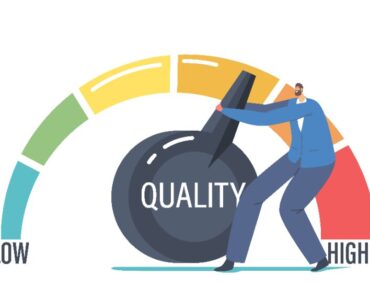by Charlie Fletcher
Being able to effectively communicate is vital at any time of life. It’s why translation services are such a powerful tool for people navigating administrative, medical, and even social situations in languages they aren’t entirely comfortable with. As a result, you may find that you’re considering hiring a translator to support an elderly relative.
This certainly tends to be another area where human translation is better than machine services. It gives your older relative a person who not just provides translated texts, but can discuss the context of the communications and answer other questions. But it can be difficult to know exactly what to look for in a translator. So, we’re going to explore a few areas of focus when researching, interviewing, and collaborating with a translator for older adults.
Ensuring a Cultural Fit
When seeking out a translator, linguistic skills are obviously important. At the same time, almost equally as important to consider for older adults is the translator’s cultural fit. There is so much more to a language and how people interact with it than just its vocabulary and grammar. The use of idiomatic phrases, nuanced dialects, and even the attitude with which people communicate can affect accuracy in translation. Importantly, usage and understanding of these varies from generation to generation.
During your research for a translator, it can be worth looking out for the following:
- Native speakers: People who have spent a good deal of their formative years speaking the language in a native setting can be more natural cultural fits. This is because they have grown up around the culture and understand the expectations and challenges when communicating with different generations.
- Educational and professional immersion: Many professional translators hone their skills in a language by spending time learning and working in a relevant country. Depending on the extent of their experiences, such situations can give them a more nuanced understanding of how the culture shapes the language and interactions than they might simply from academic learning.
Often, it’s not a single one of these elements you should rely on to indicate a good cultural fit for your older relative. There may be a combination of these or even some experiences that you may not have previously considered. The key is to have conversations with potential translators to discuss how they interact with older generations and even have them spend a little time having a conversation with your relative.
Meeting Their Needs
Any translation project involves serving a range of needs and priorities. When choosing a translator for an older relative, it is sensible to get some clarity on how each service provider may be able to serve the individual and often complex needs involved.
Some elements here to consider include:
Practical needs
Many of the translation needs of older adults will relate to empowering them to navigate practical challenges effectively. This might include translating medical or insurance documentation so they can make informed choices. It could be to help identify work and volunteer opportunities that enrich their post-retirement lives. It’s important to look at whether translators have specific qualifications—such as medical translation certification—if you expect them to be involved in interpreting sensitive and complex materials and conversations.
Mental wellness needs
Ensuring your elderly relative’s ongoing quality of life requires an understanding of what can impact mental wellness in the golden years. For instance, unexpected lifestyle changes can be stressful if there’s a lack of support. Isolation is also a common factor in later-life mental challenges. It’s wise to establish how a translator may be able to help here. They might be able to interpret documents related to lifestyle change, like retirement benefit applications. They may also facilitate conversations with community members to help combat loneliness.
Remember that there will also be needs that are unique to your relative. When interviewing translators, provide as much clarity as possible on the needs and the reasons behind them. Wherever possible, keep your loved one involved in identifying the right translator, as the experience should be empowering for them.
Maintaining an Empathetic Approach
Finding a suitable translator for an older relative goes beyond their technical skills and experiences. It’s also important to bear in mind how effective a collaborator they’re likely to be with older people. Not being able to process information and communicate effectively due to language barriers can be an intensely frustrating, frightening, and lonely experience. One of the key characteristics your translator should have is the ability to maintain an empathetic professional relationship with older adults.
Look for signs that they recognize why language hurdles can be so difficult for older people. When interviewing or assessing, translators should acknowledge the importance of communication to quality of life and show they’re emotionally engaged. They should also have a good degree of patience. The frustration of not understanding a language and even the need to ask for help may lead to anger. Ask translators how they handle these situations and what conflict resolution practices they use.
Additionally, remember that translators are human, too. Just as with many people in caring professions for older adults, they may have limits to their empathy. Overcoming compassion fatigue they experience from the excessive emotional labor involved in their responsibilities is key to maintaining positive working relationships. They will need to be vigilant of the symptoms—such as emotional exhaustion—alongside prioritizing self-care practices and effective boundary-setting. It’s important to discuss this with translators so you can ensure an empathetic and mutually healthy relationship between them and your older loved one.
Conclusion
Finding a translator for older adults can be a fantastic way to give your loved one a greater sense of freedom and quality of life. It’s vital to ensure that they aren’t just linguistically skilled, but also aware of cultural nuances and exhibit empathic traits. This can be a challenging process. Yet, with clarity on what your older loved one needs, you can tailor the most positive interpretation collaboration.
About the Author
Charlie Fletcher is an active writer and blogger with extensive experience in socio-political topics, education, health and wellness, business, HR & marketing, and lifestyle and family life. You can find out more on Charlie’s LinkedIn page.





